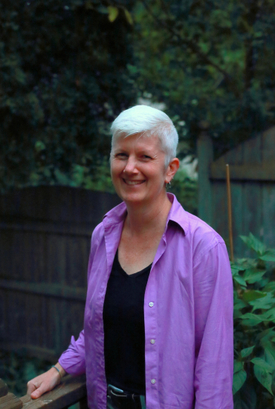Madeline Bassnett
www.uwo.ca/english/people/bassnett.html
Madeline Bassnett is the author of two chapbooks, Pilgrimage (2016) and Elegies (2011), as well as a literary monograph, Women, Food Exchange, and Governance in Early Modern England (2016). She is currently on the board of Poetry London and teaches in the Department of English and Writing Studies at Western University.
Madeline will be reading from her new book of poetry, Under the Gamma Camera.
Under the Gamma Camera is a frank portrait of our relationship with disease, exploring the contrary state of being that is illness. Rooted in her own experience of diagnosis, treatment and remission, Madeline Bassnett’s poems bristle with authenticity, with tactile and emotional detail available only to one who has lived it. A major preoccupation in these poems is reconciling the contradictory ways in which we experience illness and treatment—an experience at once deeply personal and human and also strangely impersonal and clinical. On one side is a catalogue of emotional responses, from denial, resistance and a sense of betrayal, to gratitude and relief; on the other, the strange detachment from our own body, the indifference of our corrupt cells to our fate, and the often alienating medical complex and the technology mobilized in our aid. Bassnett pays particular attention to the way the body is the medium through which all these things are experienced.
As a collection, Under the Gamma Camera is not a survivor’s memoir; Bassnett’s objective lies elsewhere, beyond any particular story line, beyond individual experience. At heart, these poems recount our internal struggle with external realities, portraying a tactile awareness of being—in states of distress and pain, in spiritual movement, and in the natural world. Their frankness is balanced by their sense of reverence and vulnerability. Bassnett accomplishes much of this through skillful use of form, through control of language, rhythm and sound, and the offer of striking metaphor. She also repurposes traditional frameworks like the seven deadly sins, the virtues and the pilgrimage narratives, refreshing their potency. Introspective as this collection sometimes feels, where the natural world and the human body share vulnerability, its view ultimately turns outward, contrasting self-perception’s snare against a persistently alive, evolving world.
Related Events
